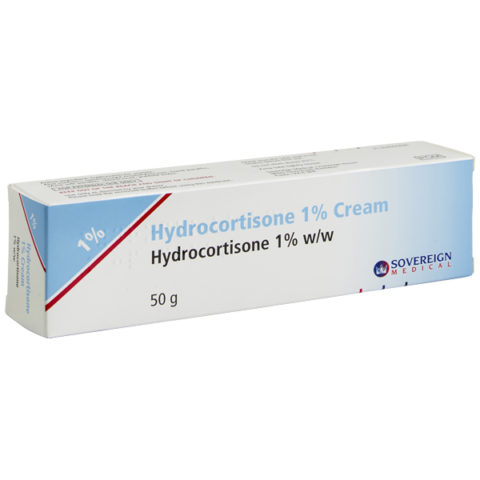Need something else?
We stock over 1103 treatments for 90 conditions

Eczema on eyelids is a condition that causes irritated, itchy and/or dry skin. It can be caused by either contact with irritants that cause allergic reactions (allergic contact dermatitis or atopic eczema) or an intrinsic skin issue that causes delicate eyelid skin.
Eyelid eczema (and eczema in ears) can be treated effectively by using emollients or topical steroids, with the former medication successful at soothing mild cases and the latter potent in addressing more severe outbreaks.
We explain simply and comprehensively what eczema on eyelids is, what causes it and what specific medications you can use to treat it.

Eyelid eczema is a condition that leads to itchy, dry and/or irritated skin on or around your eyelid. The condition is caused either by an underlying skin condition (for example, seborrheic dermatitis or atopic dermatitis) or by contact with allergens or irritants (for example, contact dermatitis or atopic contact dermatitis).
People with eczema can have a sensitive immune system. This means that when a substance inside or outside the body triggers the immune system of someone with eczema it can lead to the inflammation that causes itchy, flaky or irritable skin on your eyes.
Eyelid eczema is common among adults and can be treated effectively with emollients and mild topical steroids.
There are two causes for eczema on eyelids: contact with irritants or allergens that cause allergic reactions, or an underlying skin condition.
These are some of the common allergens that cause you to get eyelid eczema:
These are some of the underlying skin conditions that cause you to get eyelid eczema:
Both of the causes of eczema on eyelids can be treated. Depending on the severity of your condition, you can treat your eczema with emollients or mild topical steroids.

Eczema on eyelids has some clear symptoms you can look for. This is what eyelid eczema can look like for you:
Outbreaks of eczema on your eyes can become infected. This is what infected eyelid eczema could look like for you:
If you’re seeing or experiencing any of the above, you should consult with your doctor or a registered pharmacist. Untreated eczema infections can lead you to experience other health issues.
Eczema on eyelids can be irritable, painful and (perhaps) even embarrassing for some people. But it needn’t be any of these things because eyelid eczema can be treated extremely effectively with emollients and mild topical steroids.
Emollients are used for less intense cases of eyelid eczema, while mild topical steroids are taken for more severe outbreaks.
In the below section, we’ve explained what each of these treatments is in more detail and given examples of the medications available to you.
Emollients are medical moisturising treatments that hydrate, soften, protect, freshen, lubricate and moisturise your skin. These treatments come as lotions, ointments or creams. Some emollients require a prescription but many can be bought over the counter.
You apply emollient treatments directly to your skin and they cover it in a protective film. This film traps moisture and helps to soothe your eczema symptoms.
These are some of the emollients you can use to help treat eczema on eyelids.
Topical steroids are anti-inflammatory and anti-irritant medications that are used to treat rashes, dermatitis and eczema. These medications come as creams or ointments and only mild topical steroids are used for treating eyelid eczema.
You apply topical steroids directly to your skin. They then reduce the areas of inflammation by preventing your body’s cells from producing the chemicals that cause inflammation.
These are some of the mild topical steroids you can use to help treat eczema on eyelids.
Home remedies are used by many people to treat eczema on their eyelids. Coconut oil and aloe vera gel are among the most popular home remedies but are they clinically effective? The answer is that they’ve not been verified as being effective.
Some home remedies have antimicrobial and antibacterial properties. Antimicrobials act against infection, while topical antibiotics are the first course of treatment for mild bacterial-infected eczema. However, these properties alone aren’t necessarily effective in tackling eczema.
Over-the-counter and prescription treatments for eczema on eyelids are clinically tested and proven. The effectiveness of these medications does range from person to person but there’s evidence to back the claims made by the medications, unlike home remedies.
Using over-the-counter treatments can help reduce the symptoms of eczema on eyelids. If you have a more intense case of eyelid eczema, a prescription mild topical steroid can help to soothe your symptoms.
You can buy these treatments at The Independent Pharmacy after completing an online consultation. Or you can speak to one of our qualified medical experts, who can offer advice about choosing the most suitable treatment for eczema on your eyelids.
We stock over 1103 treatments for 90 conditions